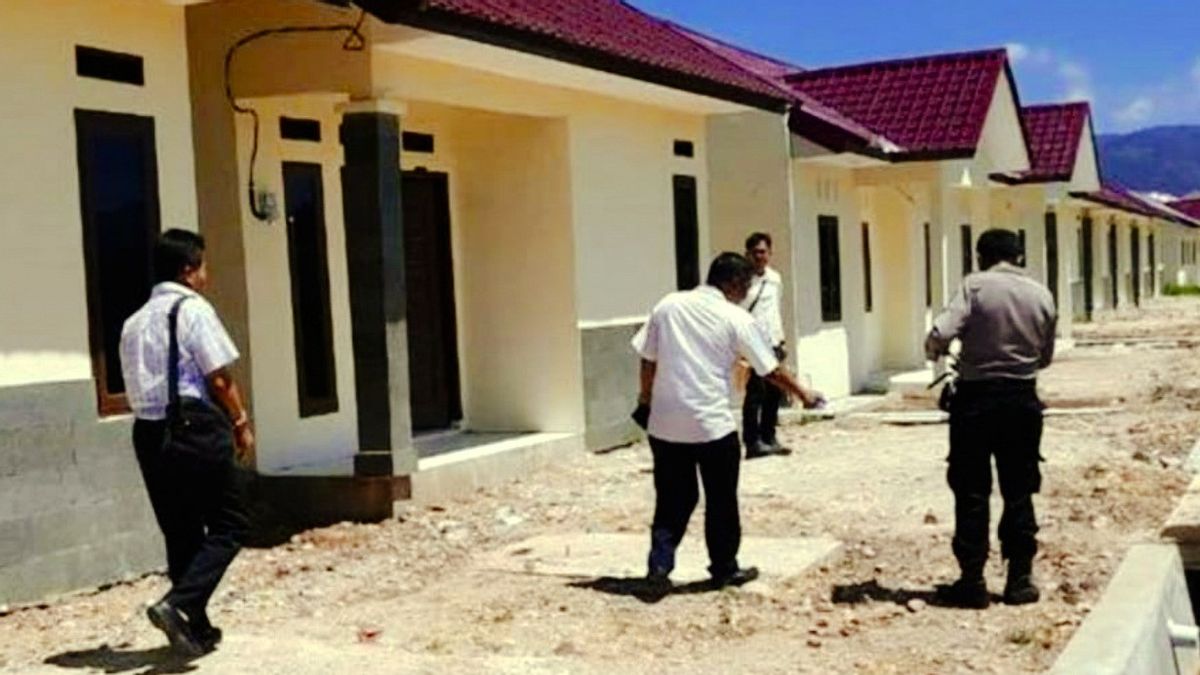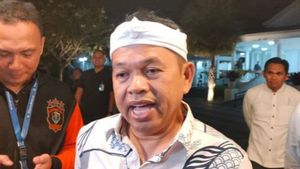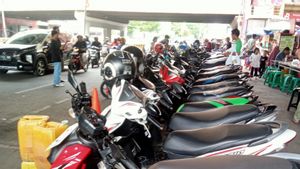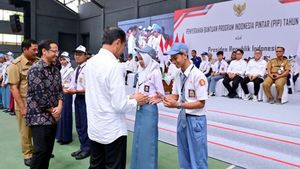JAKARTA - After being unheard of for a long time, finally the Public Housing Savings (Tapera) program was issued by President Joko Widodo (Jokowi) through Government Regulation (PP) Number 25 of 2020 concerning the Implementation of Tapera. The PP is an affirmation of the previous rule, namely Law Number 2016 concerning Public Housing Savings. An important point set out in the PP which was signed by President Jokowi on 20 May is the contribution points for the Tapera participants.
For worker participants, Article 15 of Government Regulation Number 25 of 2020 regulates the amount of savings contributions of 3 percent of salary or wages. Contributions come from the employer and the workers themselves. The amount of participant savings for worker participants is jointly borne by the employer of 0.5 percent and the worker by 2.5 percent.
The amount of savings contributions from Mandiri participants is determined based on the average income each month in the previous year with a certain limit. All independent participant savings are the personal responsibility.
Tapera adds a long list of contributions that must be borne by companies and workers. Previously, there were companies that had to bear the BPJS Kesehatan and BPJS Ketenagakerjaan (BPJamsostek) contributions.
In this regard, Executive Director of the Institute for Development of Economics and Finance (Indef) Tauhid Ahmad said the Tapera program, which requires employees to pay 2.5 percent in a long period of time, is very burdensome for the lower class. Because, according to Tauhid, they also have to pay other fees such as BPJS Kesehatan, one of them.
"This is what in my opinion the situation is less favorable for the lower class community," he told VOI, Friday, June 5.
Moreover, said Tauhid, if we look at the dues that only expire after 58 years and housing is only obtained afterwards. According to him, this is not very useful for the participants themselves.
This means, continued Tauhid, this benefit can only be enjoyed in retirement or for their children and grandchildren. Say, for example, there are people who work as motorcycle taxis or lowly employees, where they need a house for now, not for decades.
"Can the 2.5 percent or 3 percent catch up to house prices in a period of 50 years, for example? This won't catch up," he said.
Furthermore, Tauhid said, there was no clear guarantee that participants who took part in the Tapera program at retirement would get a house easily.
"So there is no guarantee whether he will participate in Tapera, can he get a cheap house when he retires or not? So as long as there is a guarantee that people who participate, I think there is no problem. But if there is no guarantee, then don't be charged. , "he explained.
Even so, Tauhid does not deny that Tapera can be a solution to get shelter, but if the target is clear. Mainly targeting those on low incomes.
"Help, but you have to see the target. It depends on the target. If you are obliged to do this, you are afraid of being a waste," he explained.
As is known, in this PP Tapera, all workers are required to follow the Tapera program. However, only those with a maximum income of IDR 8 million can apply for a house purchase.
Under Article 7 PP 25/2020, BP Tapera not only manages housing funds for civil servants (PNS), but also all companies.
BP Tapera participants are candidates for civil servants, state civil servants (ASN), soldiers and students of the Indonesian National Army (TNI), the Indonesian National Police (Polri), state officials, workers in State-Owned Enterprises (BUMN), Regional Owned Enterprises ( BUMD), Village-Owned Enterprises, private companies, and any workers who receive wages.
Commissioner for the Public Housing Savings Management Agency (BP Tapera) Adi Setianto said there was a wage limit as a condition for low-income people (MBR) who wanted to buy a house through the Tapera program.
The condition, said Adi, is that participants with a maximum income of Rp. 8 million and do not yet own a house are entitled to apply for housing financing benefits at low interest rates.
"You can buy a house using the KPR scheme based on priorities to be determined by BP Tapera in accordance with the criteria stated in the PP on the Implementation of the Tapera," said Ari, through a written statement received by VOI, in Jakarta, Thursday, June 4.
Furthermore, Adi said, Tapera program participants could also take advantage of the financing to build houses on their own land or carry out renovations. This financing benefit can be submitted by participants who meet the criteria after one year of membership through various choices of banks and other financing institutions.
"Tapera provides financing flexibility with the principle of a credit ceiling which is set according to the minimum standard of livable houses," he said.
The Tapera Program will be implemented in 2021The implementation of the community housing savings (Tapera) will be implemented in stages starting in 2021. The first phase in 2021, the obligation of the Tapera dues will apply to civil servants, police and soldiers. The second stage, the contribution obligation applies to BUMN employees and the last is private companies and independent participants.
With the existence of this PP, the one million house program of which 79 percent is prioritized for the construction of low-income housing and the remaining 21 percent is for the construction of non-MBR houses, can be realized.
"In the same year (2021), the government will also transfer the FLPP Fund to the Tapera Fund in accordance with the mandate of the PP for the Implementation of the Tapera," he said.
It is hoped that the Tapera program can solve the housing backlog problem and become a driving factor for the growth of the housing sector. In the end, this program will also encourage economic growth in Indonesia through the multiplier-effect of housing development and job creation.
The English, Chinese, Japanese, Arabic, and French versions are automatically generated by the AI. So there may still be inaccuracies in translating, please always see Indonesian as our main language. (system supported by DigitalSiber.id)













